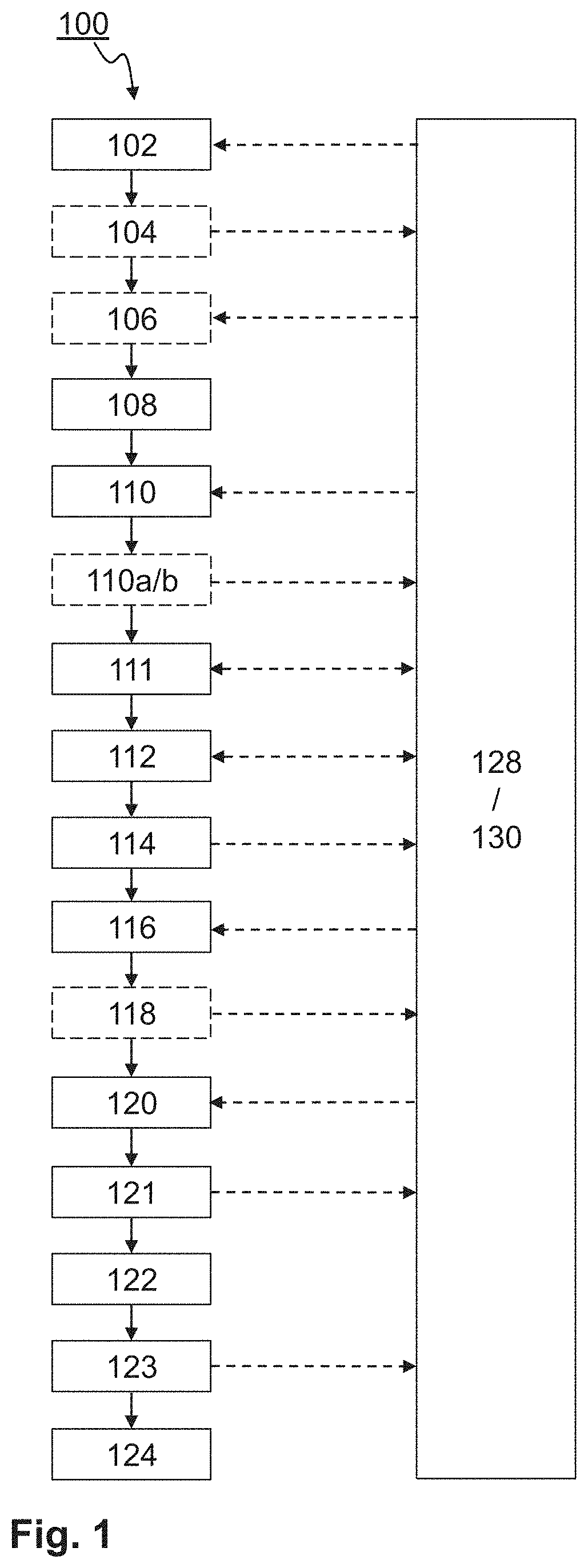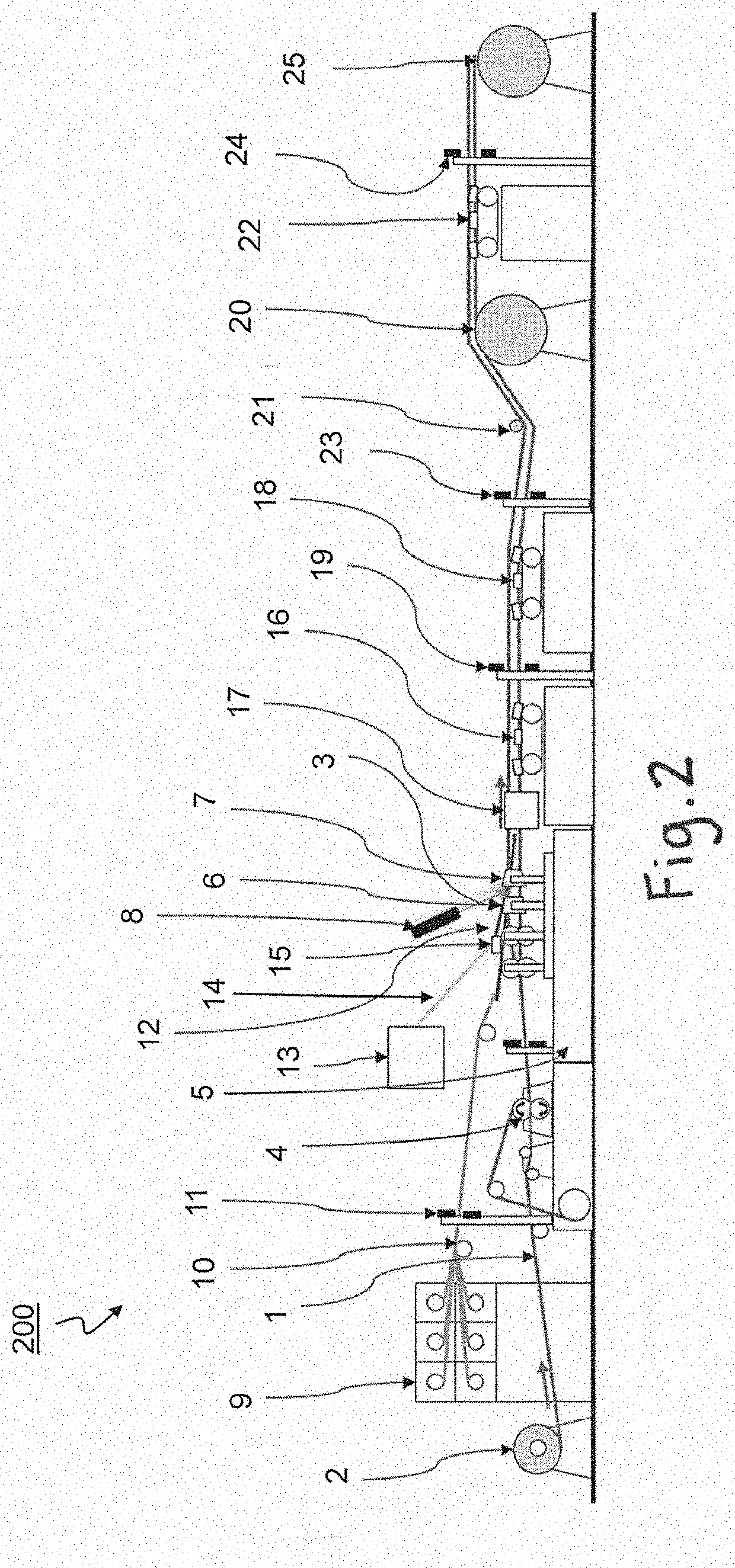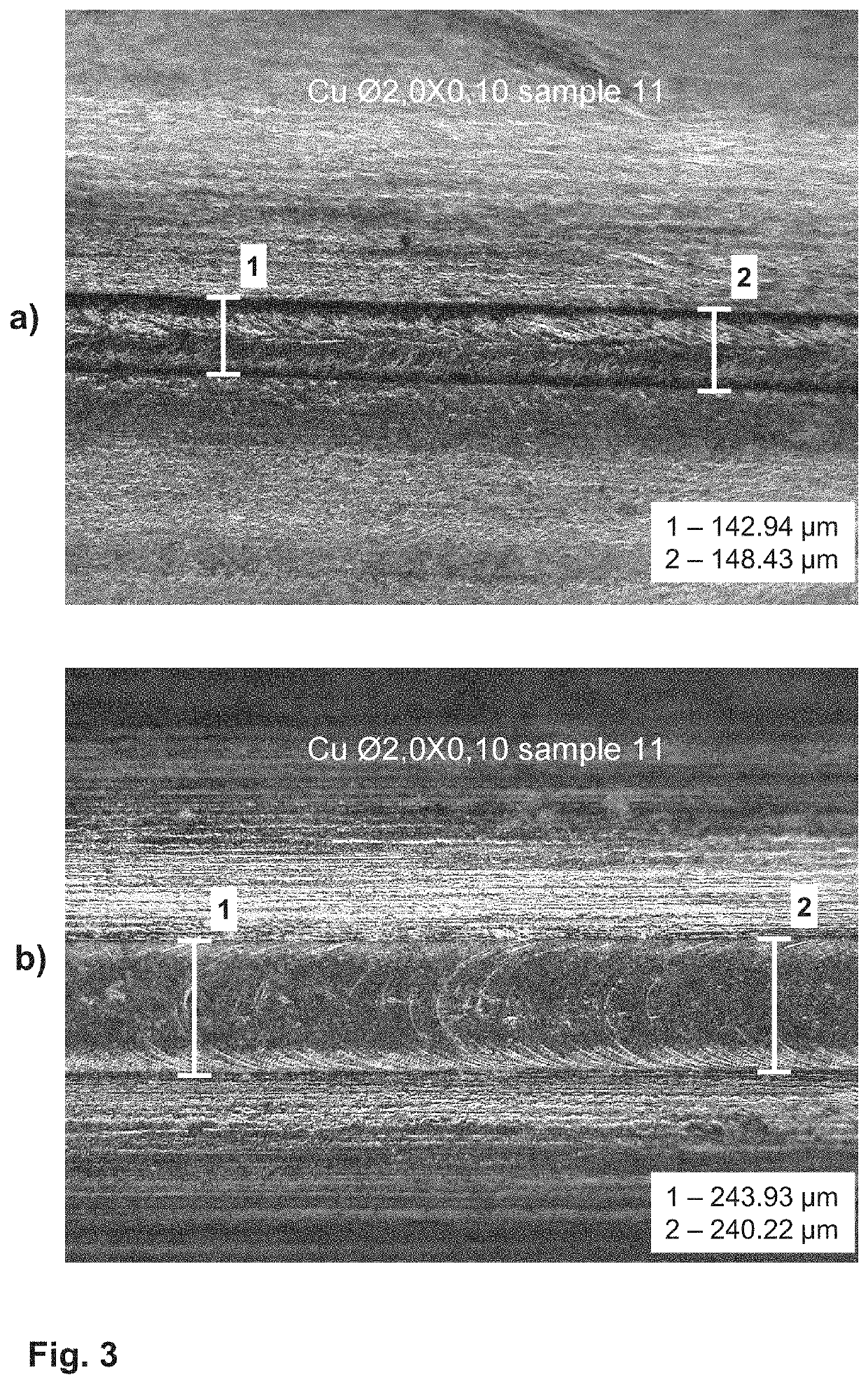Method for the continuous production of optical fibre waveguides mounted in a thin-walled, radially closed metal tube
a technology of optical fibre and metal tube, which is applied in the direction of manufacturing tools, instruments, other domestic objects, etc., can solve the problems of reducing the quality of optical fibre, and increasing the length of earth cable and metal tube, so as to reduce the wall thickness, the effect of saving valuable resources and high quality
- Summary
- Abstract
- Description
- Claims
- Application Information
AI Technical Summary
Benefits of technology
Problems solved by technology
Method used
Image
Examples
Embodiment Construction
[0060]FIG. 1 shows steps of an exemplary method 100 for producing a thin-walled, radially closed metal hollow profile, with fibre waveguides of excess length mounted therein, according to one aspect of the invention. In step 102 of the method, a flat metal strip is supplied with a first supply speed to a deforming unit, for example is unwound from a coil. In the deforming unit, the supplied flat metal strip is, in step 108, deformed to form a shape corresponding to the desired hollow profile. The deformation may be performed for example by means of a roll forming tool.
[0061]Prior to the deformation, in a cutting unit, an optional step 106 may be performed in which one or both edges of the metal strip are trimmed or prepared in some other way. In this way, even in the case of poor edge quality of the metal strip, the width of the strip can be uniformly and precisely set, and the edges can if necessary be prepared for a subsequent welding process. The cutting unit may be supplied with...
PUM
| Property | Measurement | Unit |
|---|---|---|
| Temperature | aaaaa | aaaaa |
| Length | aaaaa | aaaaa |
| Force | aaaaa | aaaaa |
Abstract
Description
Claims
Application Information
 Login to View More
Login to View More - R&D
- Intellectual Property
- Life Sciences
- Materials
- Tech Scout
- Unparalleled Data Quality
- Higher Quality Content
- 60% Fewer Hallucinations
Browse by: Latest US Patents, China's latest patents, Technical Efficacy Thesaurus, Application Domain, Technology Topic, Popular Technical Reports.
© 2025 PatSnap. All rights reserved.Legal|Privacy policy|Modern Slavery Act Transparency Statement|Sitemap|About US| Contact US: help@patsnap.com



